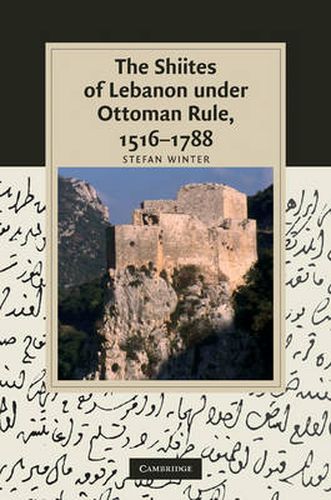Readings Newsletter
Become a Readings Member to make your shopping experience even easier.
Sign in or sign up for free!
You’re not far away from qualifying for FREE standard shipping within Australia
You’ve qualified for FREE standard shipping within Australia
The cart is loading…






The Shiites of Lebanon under Ottoman Rule provides an original perspective on the history of the Shiites as a constituent of Lebanese society. Winter presents a history of the community before the 19th century, based primarily on Ottoman Turkish documents. From these, he examines how local Shiites were well integrated in the Ottoman system of rule, and that Lebanon as an autonomous entity only developed in the course of the 18th century through the marginalization and then violent elimination of the indigenous Shiite leaderships by an increasingly powerful Druze-Maronite emirate. As such the book recovers the Ottoman-era history of a group which has always been neglected in chronicle-based works, and in doing so, fundamentally calls into question the historic place within ‘Lebanon’ of what has today become the country’s largest and most activist sectarian community.
$9.00 standard shipping within Australia
FREE standard shipping within Australia for orders over $100.00
Express & International shipping calculated at checkout
The Shiites of Lebanon under Ottoman Rule provides an original perspective on the history of the Shiites as a constituent of Lebanese society. Winter presents a history of the community before the 19th century, based primarily on Ottoman Turkish documents. From these, he examines how local Shiites were well integrated in the Ottoman system of rule, and that Lebanon as an autonomous entity only developed in the course of the 18th century through the marginalization and then violent elimination of the indigenous Shiite leaderships by an increasingly powerful Druze-Maronite emirate. As such the book recovers the Ottoman-era history of a group which has always been neglected in chronicle-based works, and in doing so, fundamentally calls into question the historic place within ‘Lebanon’ of what has today become the country’s largest and most activist sectarian community.